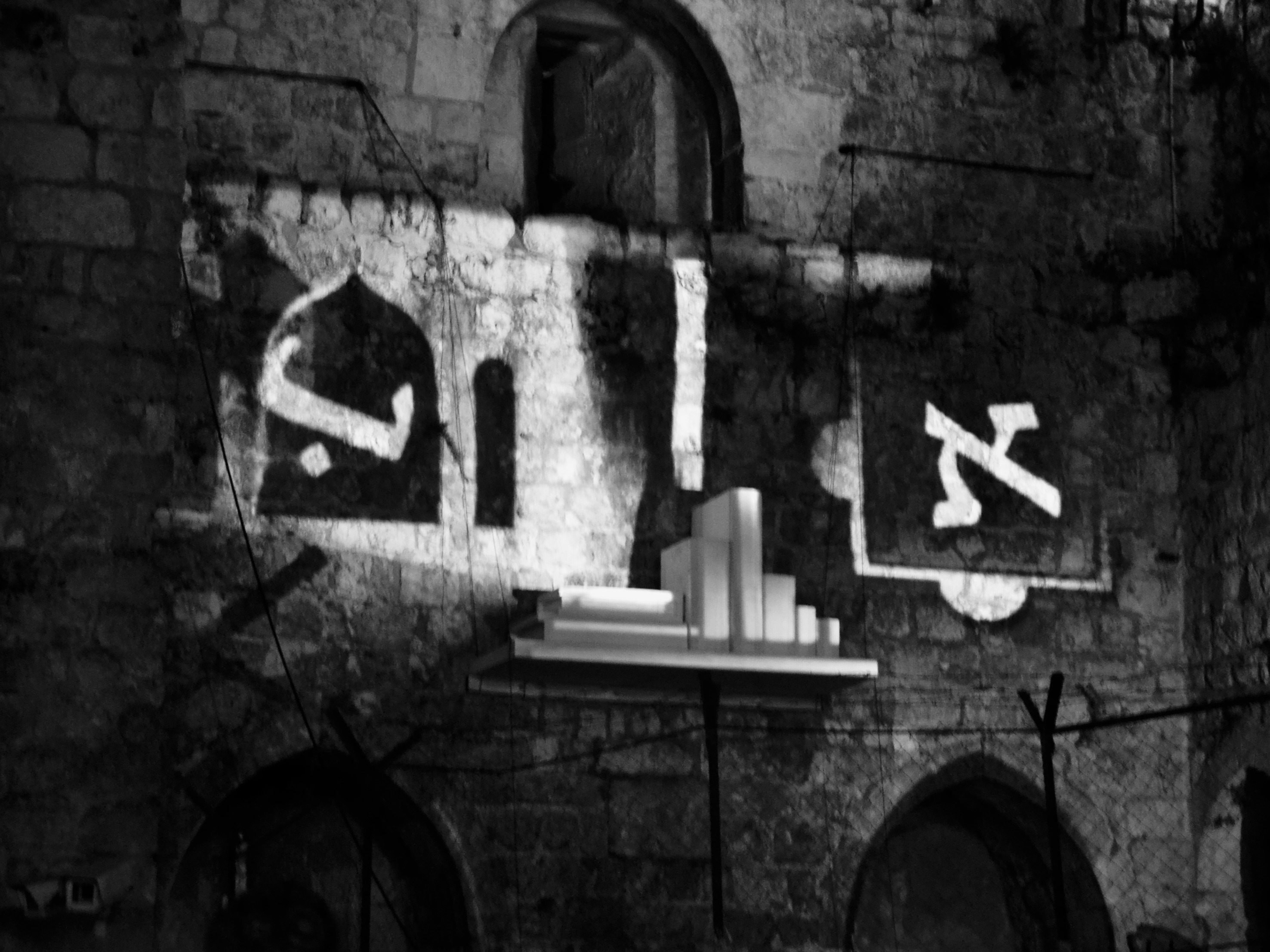Last Spring I attended a short Hebrew course which resulted in me reading Hebrew decently well and generally getting more comfortable with the language. This year I have decided to try learning Arabic; I had my first class this week. Our Arabic tutor, Hassan, intends to teach us the language through theatre exercises. I am very much looking forward to this experience which I am guessing will be as unique as learning Hebrew from a Darfur refugee.

My batch of six students includes three American students (two of whom have some background in Arabic), a Dutch girl who has had little exposure to Arabic, one Israeli with moderate Arabic skills and me, a complete novice. One of the American students, B, reads Arabic newspapers, meaning his vocabulary is highly literary in nature or fosha. The course though focuses on spoken Arabic or aaameih – meaning the language of the commoners. This was the moment in the class when I thought to myself that I can totally conquer Arabic. I let out a tiny yay when Hassan wrote aameih on the board because I suddenly recognised something in the middle of all the babbling going on around me(aam in Hindi means ordinary or general).
Hassan started introducing us to more words, like ktab – book, much like kitaab in Hindi. And I could not contain my excitement. There’s also mbruk – be blessed or congratulations, just like mubaarak in Hindi. And of course there is shukran – thank you, whose Hindi counterpart is shukriya. At this point we in the class figured that everyone would be going back with a bit of Hindi as well at the end of the class.
The vocabulary may be easy to pick up thanks to the similarities but the pronunciation is where I will have a tough time. Even in Hebrew pronunciation matters, but I get by. And I don’t see that happening with Arabic because the differences are so nuanced that I do cannot yet discern the differences very much. We use English letters as placeholders for Arabic letters, like h, H, and Kh all denote different letters/sounds; I have no clue as to how to make those sounds. Hassan is being soft on us for now, he is yet to figure out how to get three Americans, one Dutch girl and one Indian to all pronounce Arabic right. He has a tough task. For now Hassan is taking it slow, “There is a difference, just saying,” he lets out a tiny sigh. Not all of us are as lost; Michael, one of the students, shared his secret to cracking the pronunciation, he said: I tried choking myself to figure out how to replicate that sound. I don’t think I am as committed to Arabic as Michael is! No way, no, not yet at least.
All this struggle with pronunciation reminds of that time in my early teens when I was struggling with a crucial letter in Tamil, actually Tamizh. Yes, zh, because there is no equivalent to ழ – a most beautiful letter with a distinctive pronunciation. Anyway, so here I was trying to master the zh pronunciation to masquerade as a native Tamilian. For reasons unknown to me, I chose the word Vadapazhani, the name of a Chennai neighbourhood, to practice the pronunciation. I nearly had pinned it down and decided to try it out on a bus conductor when I had to in fact go to Vadapazhani. Throughout the bus journey I could not mask my joy at having pronounced it right, that too in a bus, this was as tough as it would get, fooling a true blue Tamizh man. The bus arrived at the last stop and I was still sitting in the bus relishing sound of the zh as it rolled out of my mouth. The conductor came up to me wondering why I was still in the bus and I without putting any thought into the matter once again said, “one ticket to Vadapazhani, anna.” I had missed my stop blinded by getting the zh right!
I am super stoked to be doing this course and can’t wait for my next class.